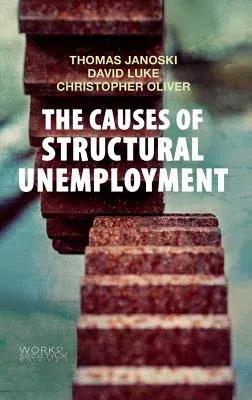Thomas Janoski
(Author)The Causes of Structural Unemployment: Four Factors That Keep People from the Jobs They DeservePaperback, 12 May 2014

Qty
1
Turbo
Ships in 2 - 3 days
In Stock
Free Delivery
Cash on Delivery
15 Days
Free Returns
Secure Checkout

Part of Series
Work & Society
Print Length
208 pages
Language
English
Publisher
Polity Press
Date Published
12 May 2014
ISBN-10
0745670288
ISBN-13
9780745670287
Description
Product Details
Book Format:
Paperback
Country of Origin:
GB
Date Published:
12 May 2014
Dimensions:
21.34 x
13.72 x
2.29 cm
ISBN-10:
0745670288
ISBN-13:
9780745670287
Language:
English
Pages:
208
Publisher:
Series:
Weight:
317.51 gm